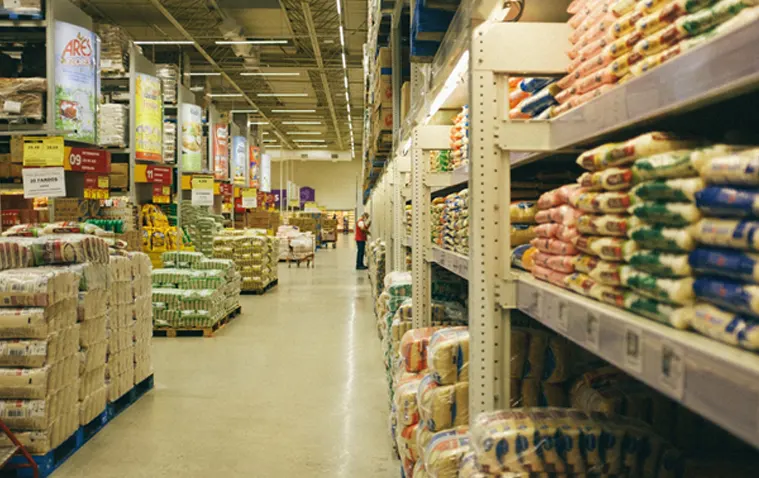With the latest advancement in communication and information technologies, several industries like retail, health care, defence, aerospace, pharmaceutical, and logistics can leverage the benefits of RFID.
The retail sector, in particular, is ripe for the use of RFID technology. Retail stores are a vital cog in product distribution and are influenced by inventory management and distribution. However, the accuracy of inventory is a major concern.
Auburn University’s RFID Lab reveals that any retail store has an average inventory accuracy of 51% to 65%. With the increasing trend of eCommerce and the most recent BOPIS (buy-online-and-pick-up-in-store) option, consumers do not want to hover from one store to another. Price comparison, delivery options, store locations, and availability are significant factors for shopping and omni-channel fulfilment.

To make same-day delivery a reality, retailers must focus on improving their inventory tracking and management. RFID implementation makes it possible.
Implementing RFID In Retail
The application of RFID in retail goes beyond simple merchandise monitoring and inventory tracking. To maximise ROI, RFID systems should be utilised strategically. For instance, some equipment and mobile devices are prone to misplacement. Tagging those devices saves money and time, preventing inefficiencies.
Retailers that have fully adopted RFID report over 10% ROI, up from 9.2% in 2019.
In fact, according to Accenture, in 2021, 66% of retailers that piloted or adopted RFID had more omnichannel choices than 39% of those retailers that did not adopt RFID.
RFID delivers constant inventory visibility with 98% accuracy when fully implemented. Higher inventory accuracy ensures easier and quicker product sales, reduces labour costs and time, and limits shipping unsold merchandise to retailers.
With increasing opportunities for ROI and reduced entry hassles, retailers can start deploying RFID. Considering its low cost and ease of implementation, this technology is the go-to for the retail sector.
Benefits Of RFID For Retail
Advanced RFID solutions address the rising security concerns by resetting store economics, reducing costs, and creating efficiency. Solutions like RFID scan code, EPC tag voiding, stock taking, and product locator streamline the process. Here’s a more profound elaboration of the benefits:
Exceptional Inventory Accuracy & Control
Inventory accuracy is the foundation for active and efficient supply chains. Conventional inventory counting techniques demand intensive labour but still fail to produce accurate results. RFID is a constructive technology that improves inventory accuracy and provides accurate counts.
RFID even helps in tracking frequently moving items, which facilitates retailers. It reduces manual labour and speeds up production, thus making tracking simpler. Precisely, RFID eases the process of regular retail inventory that otherwise takes time. Every item and each step are accurately accounted for. Bulk items are documented in minutes. A unique ID is assigned to each item to ensure one item is not read twice. This increases the efficiency of retail audits.
Robust Loss Prevention
RFID gives detailed insights about products and retail stores, which reduces the risk of theft and shrinkage. Data monitoring is an integral part of RFID, which tracks item location. In addition, anti-shoplifting alarms use RFID technology to pinpoint and prevent theft.
Strong Brand Loyalty
A slight gap in user experience could lead the customers to other brands or retailers. A McKinsey survey shows that 60% of participants faced out-of-stock products in Q3 of 2021, out of which 70% switched retailers or brands.
Brand loyalty depends on customer experience. And retailers now have the magic wand to shape customer experience across in-store and online platforms. RFID implementation strengthens brand attachment through improved interaction from purchase to exchange and returns. It saves customers’ time and reduces stress by maintaining an easy-to-find inventory segmented according to size, style, colour, etc.
RFID Implementation Best Practices
If your business is still new to RFID, follow these best practices for implementation:
Company Requirements vs. RFID
Understand your company’s requirements before implementing the RFID technology. It is imperative to compare the underlined requirements to real-time expectations. Identify your business needs so that you can evaluate the same against the RFID claims.
Analyse Business Operations
Assess your business operations to know the areas that will benefit from RFID implementation and the ones that will not experience any advantage. Engage the sales, IT, and logistics teams for a multi-department evaluation as each business operation plays a key role.
Requirements Credentials
Your requirements should be documented before implementing RFID technology. Consider multiple factors to create the credentials, such as security issues, compliance issues, type of tags, information access, data storage, RFID maintenance, etc. Defining each process with clear goals makes the process simpler.
Incorporating Technology
Retail businesses require different technologies to implement RFID. While some companies need RFID barcodes, print tags, and chips, others may need only barcodes. Consult with experts and incorporate different technologies to ensure they cover your business needs and contribute toward the goal.
Tagging Technology
RFID is a win-win strategy for those that make the right choices. Pick up appropriate tagging technology for superior reliability and performance. From surface adhesion to environmental factors, a host of factors could affect tags. Analyse all fine details to make the right choice for your retail business.
Testing
Testing ensures seamless RFID rollout. To make sure the system functions flawlessly:
- Test it in multiple scenarios and analyse the results.
- Address issues related to temporary obstructions that come up during testing.
Final Analysis
The goal of RFID implementation is to achieve favourable results. Analyse the project, review roadblocks as a team, assess data offerings, and evaluate cost savings and progress.
The Final Word
Using RFID, retailers can automate inventory data and enhance accuracy. They can also limit “out of stock” scenarios by almost 50%.
Though the industry is still in a nascent stage of RFID implementation, the technology is picking up pace. Owing to fewer installation barriers and increasing shopper expectations, RFID will be inevitable in the future.
Still unsure? Talk to experts from QodeNext to understand the technology better.







